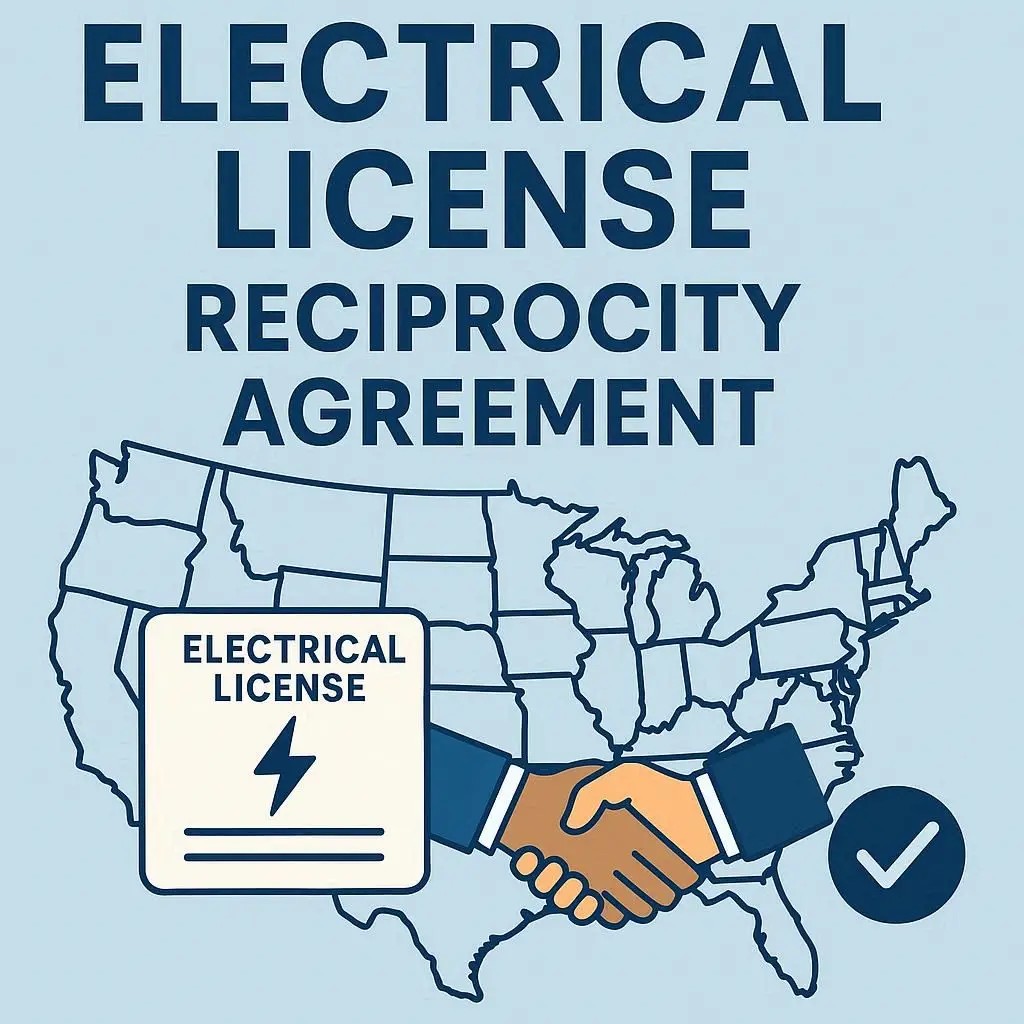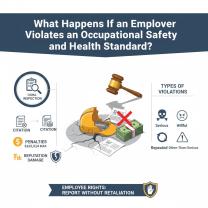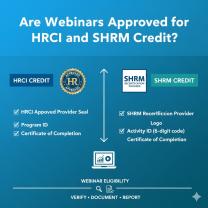What is an electelectrical license reciprocity agreement?
What Is an Electrical License Reciprocity Agreement?
An electrical license reciprocity agreement is a formal arrangement between two or more states that allows a licensed electrician in one state to obtain a license in another state without having to retake the full licensing exam.
Instead of starting from scratch, electricians can use reciprocity to transfer or recognize their existing credentials, making it easier to work across state lines.
Key Features of Reciprocity Agreements
Mutual Recognition
States agree to accept each other’s electrician licenses (sometimes with conditions).
Simplified Application Process
Usually involves paperwork, fees, and proof of good standing, but no additional exam.
Not Universal
Reciprocity depends on the state — not all states participate, and agreements vary widely.
Some states only allow reciprocity for journeyman electricians, while others include master electricians.
Conditions Apply
Must hold a valid, active license.
Must have passed an exam originally that meets the new state’s standards.
Sometimes requires proof of work experience or continuing education.
Example
If you’re a licensed journeyman in Georgia, and Georgia has a reciprocity agreement with North Carolina, you may apply in NC without retaking the NC journeyman exam.
You’d still need to submit an application, pay fees, and possibly provide employment verification.
Why It Matters
Makes it easier for electricians to move or work in multiple states.
Supports contractors working on large multi-state projects.
Helps states address labor shortages by bringing in qualified workers.
In summary:
An electrical license reciprocity agreement is a deal between states to recognize each other’s electrician licenses, saving electricians from retaking exams and helping them work more easily across state lines.
Here’s a handy state-by-state overview of electrical license reciprocity agreements—when licensed electricians can transfer credentials across state lines without retaking exams:
Electrical License Reciprocity — Overview by State
Examples of State Reciprocity Agreements
Alaska offers reciprocity with Arkansas, Colorado, Iowa, Minnesota, Montana, Nebraska, New Hampshire, New Mexico, North Dakota, Oklahoma, South Dakota, Texas, and Wyoming JADE LearningUltimate Electrician's Guide.
Colorado has agreements with Alaska, Arkansas, Idaho, Iowa, Minnesota, Montana, Nebraska, New Hampshire, New Mexico, North Dakota, Oklahoma, South Dakota, Utah, and Wyoming Ultimate Electrician's GuideProcore.
Iowa reciprocates with Alaska, Arkansas, Colorado, Minnesota, Montana, Nebraska, New Hampshire, North Dakota, Oklahoma, South Dakota, Texas, Wisconsin, and Wyoming.
Oklahoma maintains agreements with Alaska, Arkansas, Colorado, Idaho, Iowa, Montana, Nebraska, South Dakota, Texas, and Wyoming .
California reciprocates with Arizona, Nevada, and Utah, under specific conditions such as license standing and duration Wikipedia.
Maine accepts journeyperson licenses from New Hampshire, Vermont, North Dakota, Idaho, Oregon, and Wyoming, and various conditions may apply depending on license level Ultimate Electrician's GuideWikipedia.
Minnesota recognizes journeyperson licenses from Alaska, Arkansas, Colorado, Iowa, Montana, Nebraska, North Dakota, South Dakota, and Wyoming, and master licenses from Iowa, North Dakota, South Dakota, and Nebraska Ultimate Electrician's GuideProcore.
Key Insights
Reciprocity allows licensed electricians from one state to obtain equivalent credentials in partner states without re-examination.
Not all states offer reciprocity, and it varies between journeyman and master-level licenses.
States may have specific conditions — requirements may include:
A minimum period (e.g., one-year) holding the original license.
That the original license was obtained via examination.
The license must be active and in good standing.
Additional documentation (like verifications or experience affidavits) is often required DIALWashington Labor & IndustriesWelcome to Oklahoma's Official Web Site.
Reciprocity is not always mutual—just because State A accepts State B’s license doesn't mean State B accepts State A’s.
From Real Electricians
“It's going to depend on license reciprocity. Some states allow you to use a license from certain other states for a limited time... some make you buy a license for their state based on being licensed in certain other states.”
— Reddit Reddit
What You Can Do Next
Identify your current license level—journeyman or master.
Check the reciprocity status of the state you want to move to or work in.
Review eligibility:
License by examination
Duration and standing of license
Specific application forms and required documentation
Submit the proper applications—often online—and pay applicable fees.
Confirm any continuing education or additional criteria imposed by the destination state.
In Summary
Yes, electrical license reciprocity exists, but heavily varies by state and license level.
States like Alaska, Colorado, Iowa, Maine, California, Minnesota, and Oklahoma have established agreements with multiple others.
Always verify specifics—especially about exam requirements, license standing, and documentation needed.
Understanding Electrical License Reciprocity Agreements
Electrical license reciprocity is an agreement between two or more states that allows a licensed electrician to obtain a license in another state without having to retake the full licensing exam. Essentially, a state recognizes the license you've already earned in your home state, provided that your original license meets or exceeds its own standards. This process simplifies the ability for electricians to work across state lines, which is especially beneficial for those who live near state borders or who work on projects in multiple states. The goal of these agreements is to streamline the licensing process while still ensuring that all electricians meet a high standard of safety and competence.
States That Participate in Reciprocity Agreements
The states that participate in electrical license reciprocity agreements can change over time. Many states have agreements with neighboring states, and some have broader, multi-state agreements. Common examples of states with reciprocity include those in the Midwest and on the East Coast, where travel for work is frequent. For instance, a state like Ohio may have a reciprocity agreement with Kentucky and West Virginia, but not with California. It is important to note that a reciprocity agreement between two states does not guarantee a direct license transfer. It simply means the application process will be less burdensome, usually waiving the need for the national portion of the exam, but still requiring the state-specific exam portion.
How Reciprocity Impacts Licensed Electricians
Reciprocity significantly impacts licensed electricians by providing them with greater flexibility and career opportunities. Without reciprocity, an electrician who moves to a new state or takes on a project across a border would have to repeat the entire licensing process, which can be both time-consuming and expensive. Reciprocity allows them to quickly obtain the necessary authorization to work legally. This not only benefits the individual electrician but also makes it easier for companies to take on large projects that span multiple states, as they can rely on their existing, licensed workforce.
Steps to Apply for a Reciprocal License
The steps to apply for a reciprocal license vary by state, but generally follow a similar process:
Verify the Agreement: The first step is to confirm that your home state and the target state have a reciprocal licensing agreement for electricians. You can usually find this information on the state's licensing board website.
Meet Requirements: Ensure you meet all the requirements of the target state, which may include having a certain number of years of experience or holding an active, in-good-standing license from your home state.
Complete the Application: Fill out the reciprocal license application form. This will require providing proof of your current license, work experience, and personal information.
Pay Fees: Reciprocal license applications come with fees. Make sure you pay all required application and licensing fees.
Pass State-Specific Exam: In most cases, you will still need to pass the state-specific portion of the electrical exam, which covers local codes, laws, and regulations.
Receive Your License: Once the application is approved and you have met all requirements, the state will issue your new electrical license.
Common Challenges and Tips in License Reciprocity
While reciprocity simplifies the process, there are still some common challenges. The biggest is that requirements are not always identical between states. A state might have a higher number of required apprenticeship hours, and if your home state's requirements fall short, you may not qualify for reciprocity. Another challenge is the lack of a universal, nationwide agreement; reciprocity is a patchwork of individual agreements.
To overcome these challenges, here are a few tips:
Do Your Homework: Thoroughly research the specific reciprocity agreements between your states. Don't assume that an agreement exists or that it will be a simple process.
Keep Detailed Records: Maintain meticulous records of your training, apprenticeship hours, and work experience. You may be asked to provide this documentation during the application process.
Contact the Licensing Board: If you are unsure about the requirements, contact the licensing board of the state you want to move to. They can provide the most accurate and up-to-date information.












